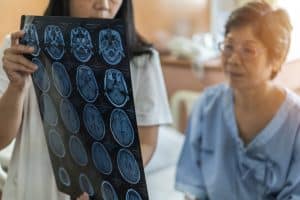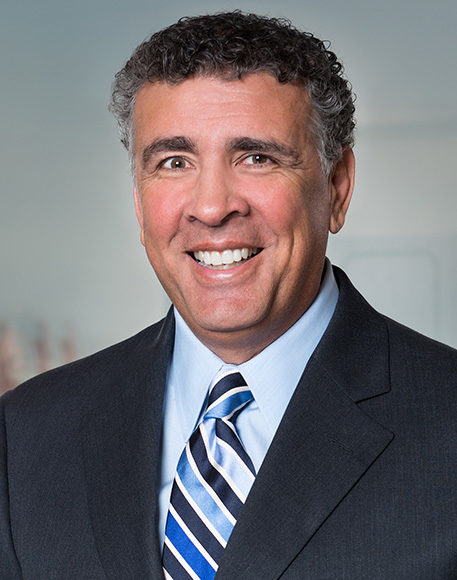Strokes Are Physically and Financially Devastating
 When an individual suffers a stroke, their life often changes forever. In fact, they may become completely incapacitated and unable to participate in or enjoy the activities that they did before the stroke. While expensive medical expenses, lost income, and pain and suffering are all parts of a recovering stroke victim’s life, it is important to realize that many stroke victims must also come to terms with the fact that they may never fully recover or have the same quality of life that they once had.
When an individual suffers a stroke, their life often changes forever. In fact, they may become completely incapacitated and unable to participate in or enjoy the activities that they did before the stroke. While expensive medical expenses, lost income, and pain and suffering are all parts of a recovering stroke victim’s life, it is important to realize that many stroke victims must also come to terms with the fact that they may never fully recover or have the same quality of life that they once had.
How common are strokes?
The Centers for Disease Control and Prevention (CDC) states that close to 800,000 people across America have strokes annually, and more than 600,000 of these strokes are the individuals’ first strokes. A person suffers a stroke “every 40 seconds” in the United States, and a person passes away “every three minutes and 14 seconds” from a stroke. Strokes are much more common than people might think.
The negative physical effects of a stroke
Strokes can negatively affect physical capabilities to varying degrees. Some of those negative physical effects include:
- Paralysis: According to the American Stroke Association (ASA), paralysis is very common among stroke victims. Sometimes, paralysis may be temporary, while other times it may be permanent. The ASA points out that if you have a stroke in the left area of your brain, you are likely to be paralyzed in your right limbs and side of the body. If you experience a stroke in the right area of your brain, you may suffer from paralysis in your left limbs and side of the body.
- Inability to move or function/ muscle problems: The National Institute of Neurological Disorders and Stroke explains that it is very common for individuals who have experienced a stroke to be unable to move or function the same way again. This is due to the fact that these individuals frequently suffer from motor sensory impairment, which is a condition that causes muscle movement issues, severe weakness, and coordination and balance problems. When the brain becomes damaged in the areas that were previously used to control your everyday maneuvers, the individual may no longer be able to move, walk, swallow, chew, or anything else that requires using muscles, balance, or coordination.
- Speech issues: It is also very common for victims of strokes to never be able to speak or communicate again. This is usually due to cells in the left area of the brain being permanently damaged during the stroke. In addition, sometimes, when individuals have a stroke, they may lose their ability to understand or comprehend language.
- Inability to make facial expressions/ move your face: When individuals have a stroke, the muscles in their face may become very weak or even paralyzed. As a result, they may be unable to make facial expressions, move their face, or even use the muscles within the face ever again.
The negative financial effects of a stroke
The negative financial effects of a stroke can be stressful, frustrating, and even overwhelming for stroke victims. Many people tend to focus only on the physical effects, but the expenses of dealing with the aftermath of a stroke can become very costly. Some of the costs and expenses may add up due to the following:
- Brain surgeries: Brain surgeries are one of the most critical surgeries that a stroke patient may undergo. However, regardless of how critical and necessary they might be, this does not take away from the fact that they can be very expensive. In fact, a recent news article released by CBS News stated that the average price for brain surgery is around $52,000.
- Hospital visits and doctor appointments: Stroke victims will also need to pay for their hospital visits and doctor appointments, which may include emergency room care and follow-up doctor office visits. The price for these types of visits can vary, but they may add up very quickly over time.
- Physical and occupational therapy: Physical and occupational therapy are a necessity for stroke victims. These forms of therapy help patients relearn how to care for themselves, carry out their daily tasks and duties, and develop new ways of doing things. However, these services do not come with a cheap price tag.
- Home services: Victims of a stroke usually cannot stay on their own or live independently for a long time. They may need around-the-clock care, which often requires hiring a live-in caregiver or home health aide. While this may seem costly, it is not something that a stroke victim can live without as they need help going to the restroom, taking their medications, eating, and bathing.
- Medical devices: After a person has a stroke, they may need certain medical devices to help them learn how to walk and move around again. These devices may include walkers, canes, wheelchairs, and more. Most of the time, it is the individual’s responsibility to purchase these devices as the doctor does not typically rent them out or loan them to patients.
New development using artificial intelligence emerges for stroke victims
A recent article published by Fortune Well reported on an artificial intelligence (A.I) study. The subject of the study, Ann, is a paralyzed stroke victim who has been unable to speak or communicate for almost 20 years. The A.I. study, which lasted for several weeks, connected a cord from her brain to computers in order to create speech and communication from her.
After some time, the computers started making sense of her brain’s signals, which allowed them to develop a way for the woman to communicate. Her voice from before the stroke was used to give the study a personalized touch. Once the study was completed, the system created a vocabulary of more than 1,000 words for Ann. However, the best part was the researcher’s ability to see the excitement and happiness on her face. It gives her and other stroke victims a glimmer of hope to know that they may be able to communicate with their family members and loved ones again one day.
If you or a loved one recently suffered a stroke and treatment was delayed, please do not hesitate to reach out to a delayed treatment of a stroke attorney at Garcia & Coman at your earliest opportunity. We will listen to your side of the story, analyze the facts of your case, collect convincing evidence, and build a strong case against the defendant. All you have to do is call or contact our team to schedule your free case evaluation today. We are ready and available to assist you in Louisville, Phoenix, Los Angeles, Long Beach, and New Orleans.

Stephen M. Garcia represents victims of elder and nursing home abuse and is known as one of the leading civil litigators in the country. He is Senior Partner at Garcia & Coman, where the firm’s practice is focused on elder abuse, nursing home abuse, and wrongful death of the elderly.
Find out more about Stephen M. Garcia

